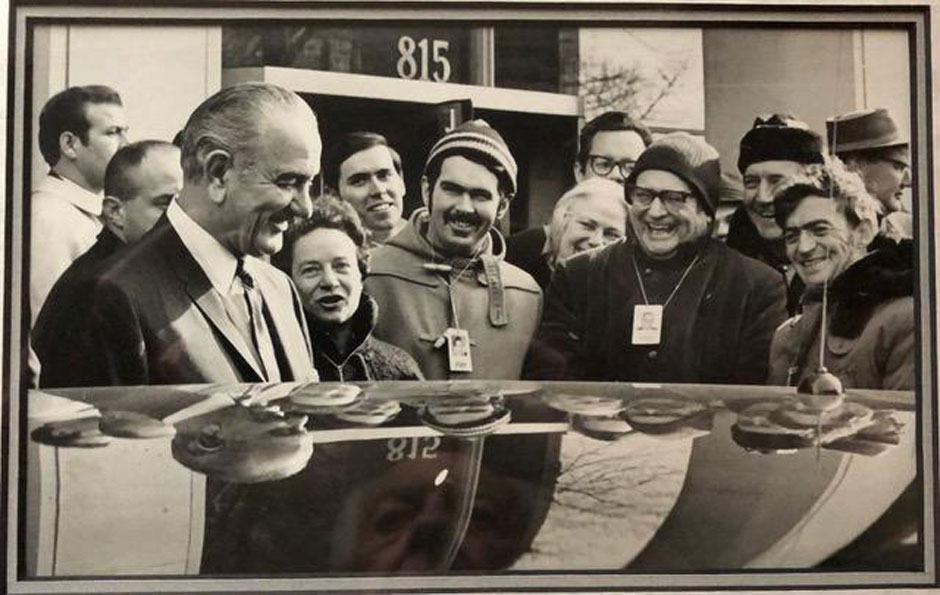
For me the 1969 AP strike lasted eight incredibly cold New England days. I was 27 years old and had joined AP less than two years earlier. The Concord, N.H., bureau had two newspeople and one Teletype operator. We were in the building of the Concord Monitor, touted as the state’s most “liberal”’ paper (which had busted the typographical union). Its publisher, an AP board member, threatened to have me arrested if I picketed the building.
I ignored him. Would get up at 4:30 a.m. (one morning we faced a record 27 degrees below zero) to be in front of the building to keep the operator from crossing my one-person “line.” The operators, members of the Commercial Telegraphers Union, were told to report to work if there was no picket, but if there was not to cross. (The other news guy, Correspondent Carl Clement Craft, went home to Indiana on vacation).
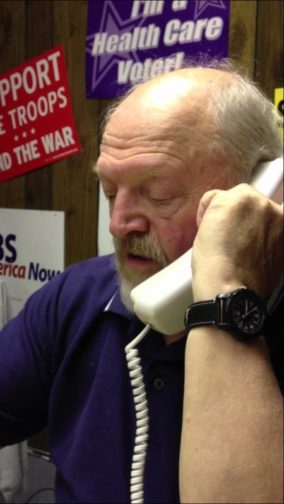
While the liberal newspaper threatened to arrest me, the ultraconservative Manchester Union Leader (whose publisher insisted that his newspaper be unionized) asked me to cover a few legislative hearings – at union pay.
Once the operator showed up at the building, and I kept him from crossing my “line,” we would stop at the Dunkin’ Donuts then drive 150 miles one way to Montpelier, Vt., to picket that bureau, one of whose news guys worked during the strike. Then we’d drive home and do it again the next day. I received about $35 a week in strike benefits.
The AP report during the strike, these days called the “product,” was atrocious; the A-wire essentially was briefs. The evaporated New Hampshire state report – produced by Boston managers – was embarrassing.
During the strike, a group of AP strikers walked over from the Washington bureau to the AFL-CIO building on 16th St, NW and chatted with LBJ.
The strike ended when the operators went back to work. And then as now and in all contract talks, we had nonmembers demanding good contracts without paying for them with union dues.
Among the benefits won in that strike was a 37½-hour week for night, overnight and Sunday staffers; cost-of-living protection in the third year of the contract; additional company contribution to health insurance cost; third week of vacation after four years’ service; fourth week after nine years; and an employee birthday as a paid holiday;.
More importantly, the strike energized and mobilized a new generation of Guild leaders responsible for the union’s lawsuit that opened AP to women and minorities, which the company fought and one executive declared it Pearl Harbor Day.
At the time, AP was run by white guys; it had very few women and even fewer minorities. One bureau chief referred to an African-American staffer by the n-word. Malcolm Barr recalls that during the 1968 riots, there was but one African-American newsman in the Washington bureau – Austin Scott – who later joined The Washington Post. The AP threatened to fire me unless I shaved my “beatnik” goatee. I didn’t and my union fought and won my grievance.
AP eventually settled the lawsuit by signing the consent decree to expand the hiring and promoting of women and minorities. It was a monumental victory.
In addition to opening AP to women and minorities, the union later achieved domestic partner health insurance coverage, expanded maternity-paternity leave (which the AP fought and then took credit for the benefit). And the union made gains in the life of AP staffers and their families, be it bereavement leave or lunch hours at the option of the employee, not employer.
I don’t know if my recollections of the strike offer wisdom or inspiration. Nothing is won easily. Labor didn’t abolish child labor, secure the 40-hour workweek, or win the weekend for the middle class without struggle, sometimes bloody and deadly.
My message is that the union is forever and we are one, or as St. Paul said, “We are all one of another.”



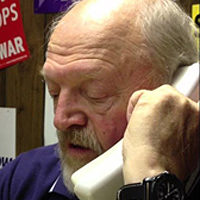

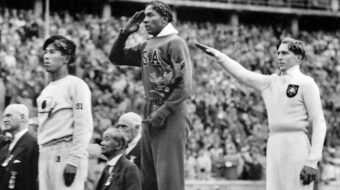
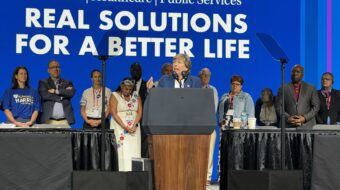





Comments